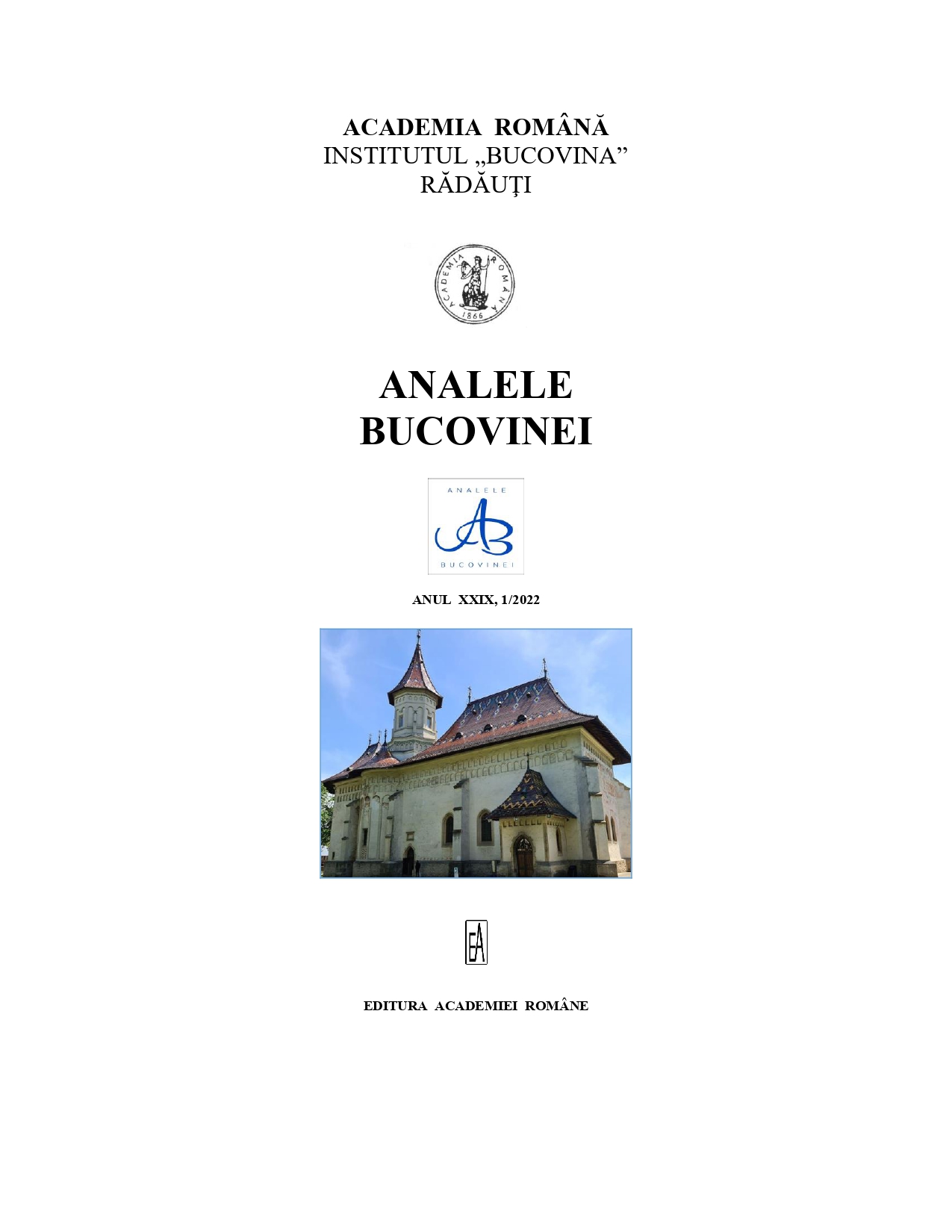SERBAREA DE LA PUTNA ȘI RĂZBOIUL FRANCO-PRUSAC (1870–1871)
The Putna Celebration and the Franco-Prussian war (1870–1871)
Author(s): Ion FilipciucSubject(s): History, Comparative history, Diplomatic history, Local History / Microhistory, Political history, Modern Age, 19th Century
Published by: Editura Academiei Române
Keywords: Gabriel Băleanu; E. Logothetti; M. Eminescu; I. Slavici; Otto von Bismarck; Prince Leopold; Prince Charles; Napoleon III; abbot Arcadie Ciupercovici;
Summary/Abstract: Between the cultural and religious event dedicated to the Moldavian ruler Stephen the Great, organized by the Romanian students from Vienna, Paris, Liege, Iasi, Berlin, Bucharest and Blaj, which was to take place on Saturday, August 15/27, 1870, at the Putna Monastery (in Bukovina, in the Austro-Hungarian Empire), and the armed confrontation between France and Prussia (which started on Tuesday, July 7/19, 1870 and ended on September 2, 1870, with the surrender of the French army, the deposition and the exile of Napoleon III on Sunday, September 4, 1870) there is no cause-purpose-effect connection, all the more so as the two events happened dispersed in time and space (Berlin, Paris, Vienna, Bucharest, Putna).And yet regarding the two historical facts, one Romanian and the other European, there was a factor of concern because in order to fill the vacant throne of the Kingdom of Spain, the Chancellor of Prussia chose Prince Leopold of Sigmaringen-Hohenzollern, whose brother Charles occupied in Bucharest the throne of the Romanian Principalities. However, the Bucharest-Berlin-Madrid triangle offered Europe a Hohenzollernian political perspective that could not be accepted by the hegemon pretender from Paris.The celebration at the tomb of Stephen the Great was firstly suggested by Iraclie Porumbescu, a parish priest in Putna village (Iasi, 1857). It was later presented by the Romanian student Constantin Aronovici in his dissertation „About the Genius of Stephen the Great” (Vienna, Saturday, December 4, 1869), conceived by Emanuil Logothetti (Saturday, December 25, 1869) and partially organized by Gabriel Băleanu inside the Putna Monastery on Saturday, August 15/27, 1870). The celebration took place in the tradition of the Assumption, with guests from Bukovinian villages and many others who came from Moldova, without causing impediments or suspicions in the context of the events in Europe.The central committee of the Romanian students in Vienna postponed the celebration for 1871, for a reason which is understandable in the “mioritic space”: the disappearance of the insurance policy of the money deposited at a Viennese bank, recklessly entrusted to the Romanians “Pêrlea & Murăşanu”. The invocation of the Franco-Prussian war (July 19, 1870 – May 10, 1871) was an excellent gimmick forcredible publicity in the “Wallachian void”.
Journal: ANALELE BUCOVINEI
- Issue Year: 58/2022
- Issue No: 1
- Page Range: 251-276
- Page Count: 26
- Language: Romanian

